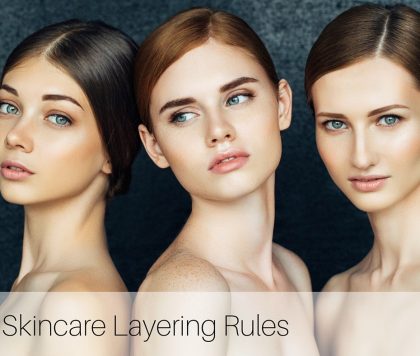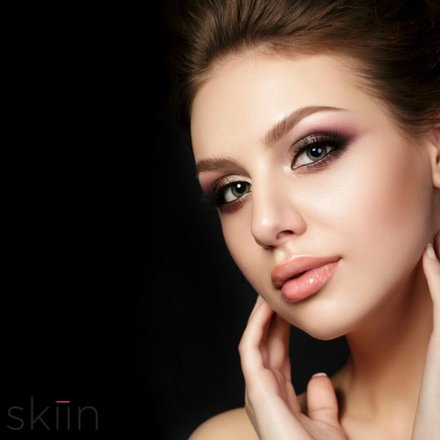
*
SKIN CARE LAYERING RULES
If you are a skincare lover, your beauty cabinet is most likely bursting at the seams with products. Cleansers, toners, serums, moisturisers, you name it – you’ve probably used it on your face. Majority of the time, we rely on creating a cocktail of products in hopes of achieving a healthy, glowing complexion. Whilst many dermatologists will agree that layering skincare products can be very beneficial for your skin, there is a catch—some ingredients do more harm than good when applied in tandem. According to celebrity aesthetician Renée Rouleau, there are certain skin-care ingredients that, when combined, actually cancel each other out, or worse, could cause a major skin reaction. Here is an updated do-not- mix list:
Retinol & Benzoyl Peroxide
Whilst this may seem a good idea as both ingredients help to fight acne and break outs, retinol stimulates cell production and can leave the skin extra sensitive. Benzoyl peroxide works by drying the skin, which causes double the irritation in tandem with retinol. “The combination can inflame and irritate the skin, which is not what you want from your at-home products.” Says Rouleau
Retinol & Glycolic Acid
Prescription retinoids, like Retin-A, and glycolic acid are both proven to be very effective anti-ageing ingredients, but in this case two is not better than one. “While prescription retinoids can be more effective for resurfacing sun-damaged skin, they are even more irritating to the skin than non-prescription retinol,” explains Rouleau. Drying and peeling is common, until your skin gets used to the retinoid. When this dryness occurs, it causes small, superficial cracks in the skin, which allow moisture to escape more easily, and irritants to get into the skin more readily. “Since an AHA like glycolic acid has a lower pH than the skin has (which is how it dissolves dry cells on the surface of the skin), this damaged protective barrier can be exacerbated when using at the same time as a prescription retinoid,” says Rouleau. “The result can potentially cause a slight burn to the skin, similar to that of a chemical peel.” Her advice: You can still use them both, just use them on different evenings.
Cleansing Oils & Treatment Serums
In this case, there’s no danger of over treating the skin. Cleansing oils are fantastic for removing dirt, makeup and oil without stripping or dying out the skin but they leave a barrier, which could be cancelling out all the products you use afterwards. “These oils, while they feel luxurious to use and leave dry skin types feeling very soft, can leave a residue and barrier on the skin,” says Rouleau. “If you apply a treatment serum afterwards — with ingredients like beta-glucan, peptides, or vitamin C — it will prevent these active ingredients from getting deep within the skin where they need to go to provide skin correction.” The solution: Use cleansing oils in either the morning or the evening — whichever time of the day you don’t use a treatment serum.
Vitamin C & Acids
This includes lactic, glycolic, salicylic, malic or tartaric acid. These AHAs and BHAs lower the pH of your skin, and dissolve surface dry skin cells. Adding your own vitamin C to an acid might mean that the ratio of C to acid will cause redness and peeling.
Foundation & SPF
Whilst this may be a tempting timesaver, it’s not advised. “It’s best never to mix your sunscreen and foundation makeup (or your moisturizer) together, because then you are not getting the full SPF number listed on the bottle,” Rouleau says. “A sunscreen is a drug that has been tested and approved by the FDA in its final form. Changing the formula by adding moisturizer or foundation makeup will alter a drug, so you can’t be 100% sure that it’s going to protect you.”
* Disclaimer : The content of the SKIIN Clinic web site, such as text, graphics, images, and information obtained from third parties, are for informational purposes only. Results from series of treatments performed may vary from a person to another. It is recommended to consult our qualified doctors, nurses or skin therapist prior to performing a treatment.






